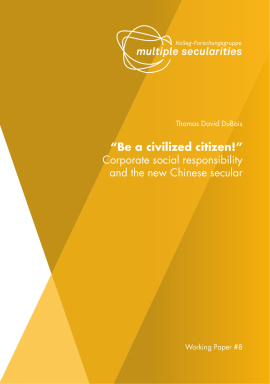Companion to the Study of Secularity
Recently, two new entries have been added to the KFG's Companion to the Study of Secularity.
Katja Triplett's entry on Religion and Medicine in Japan provides an historical overview of the development of the relationship between religion and medicine in Japan from the Asuka period (538-710), when Buddhism was officially introduced in Japan, to the 20th century.
In his entry on Religionization and Secularity Markus Dreßler introduces four concepts relevant to the study of secularity: religionization, religio-secularization, religio-secularism, and religion-making. They are proposed as heuristic devices for the analysis of the processes through which social structures, practices, and discourses come to be understood as ‘religious’ or ‘religion.’
The Companion to the Study of Secularity is a publication that is projected to grow over time. It consists of short articles in encyclopaedic form and style, which detail the specific concepts and peculiarities of secularity in different regions and eras. The Companion’s entries are not intended to initiate detailed intradisciplinary discussion or to present new findings from research. Instead, they should provide the wider academic community with an insight into the concept of multiple secularities and thus foster transdisciplinary exchange.
|
BulletinOur Bulletin gives the opportunity to comment on current political, social or cultural events and developments from the perspective of Multiple Secularities, to place them in a broader context through our expertise or to present alternative perspectives. We would therefore like to encourage you to make short, journalistic style contributions to the Bulletin. Please contact Judith Zimmermann if you wish to do so.
Foteine König wrote a Bulletin entry on her recent visit to Leipzig's Ethnological Museum titled Sacred or profane? Thoughts on objects in ethnological museums.
Roopesh OB provides some reflections on the recent political and religious turmoil around a temple in the southern Indian state of Kerala in his article on Women Entry in Sabarimala Temple: State, Judiciary, and Religion.
Lena Dreier authored an article on The Political Appeal of "European" Imams about efforts to guide the training of imams politically and thus to cultivate a generation of Imams who naturally represent and defend not only Islam but also fundamental European values.
|


